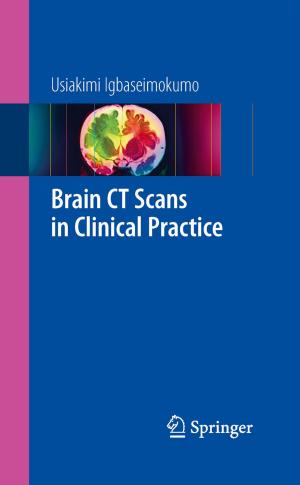The Embryo
Normal and Abnormal Development and Growth
Nonfiction, Health & Well Being, Medical, Specialties, Internal Medicine, Endocrinology & Metabolism, Gynecology & Obstetrics| Author: | ISBN: | 9781447118022 | |
| Publisher: | Springer London | Publication: | December 6, 2012 |
| Imprint: | Springer | Language: | English |
| Author: | |
| ISBN: | 9781447118022 |
| Publisher: | Springer London |
| Publication: | December 6, 2012 |
| Imprint: | Springer |
| Language: | English |
A variety of new techniques that promise to revolutionize the clinical management of early pregnancy are fully detailed in this state-of-the-art book. Leading international researchers describe fast-moving topics such as embryo manipulation and the diagnosis of congenital abnormalities. The technology of assisted reproduction has made it possible to study living embryonic material for the first time, which has led to rapid advances in our understanding of the human embryo's early development. For example, study of the embryo in the test tube has pointed to early pregnancy loss as a possible cause of later infertility. Even more important, diagnostic tests using sophisticated techniques of molecular biology can be run on single cells before the embryo is replaced in the uterus. Another area of advance is the diagnosis of congenital abnormalities in the first and second trimesters of pregnancy. Great improvements have been made in the techniques of chorion villus biopsy and ultrasound imaging. A spectrum of simple biochemical tests performed on the mother's blood can greatly improve the detection of Down syndrome and other chromosome defects. Together with other developments in the fields of molecular biology and endocrinology, these new diagnostic techniques are the beginning of a new age in clinical human genetics and embryology.
A variety of new techniques that promise to revolutionize the clinical management of early pregnancy are fully detailed in this state-of-the-art book. Leading international researchers describe fast-moving topics such as embryo manipulation and the diagnosis of congenital abnormalities. The technology of assisted reproduction has made it possible to study living embryonic material for the first time, which has led to rapid advances in our understanding of the human embryo's early development. For example, study of the embryo in the test tube has pointed to early pregnancy loss as a possible cause of later infertility. Even more important, diagnostic tests using sophisticated techniques of molecular biology can be run on single cells before the embryo is replaced in the uterus. Another area of advance is the diagnosis of congenital abnormalities in the first and second trimesters of pregnancy. Great improvements have been made in the techniques of chorion villus biopsy and ultrasound imaging. A spectrum of simple biochemical tests performed on the mother's blood can greatly improve the detection of Down syndrome and other chromosome defects. Together with other developments in the fields of molecular biology and endocrinology, these new diagnostic techniques are the beginning of a new age in clinical human genetics and embryology.















